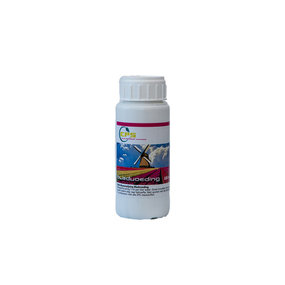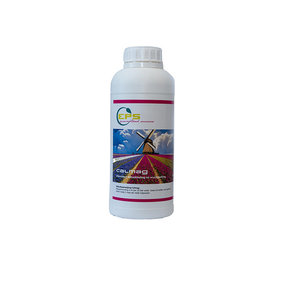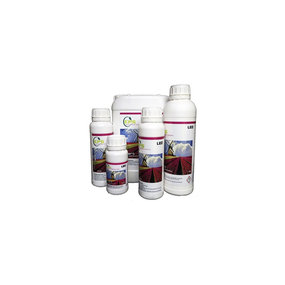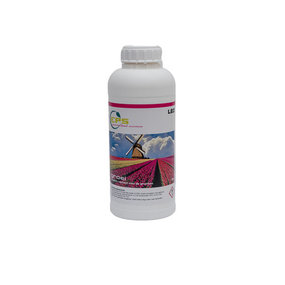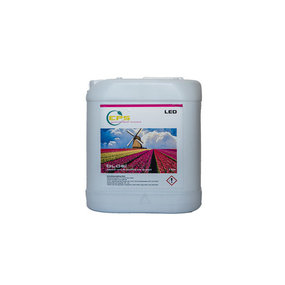EPS
Growing plants requires the right combination of elements, and this is especially true when it comes to using artificial LED lights. That’s why so many people turn to EPS plant nutritions. Here is a comprehensive guide to the different varieties of EPS plant nutritions available, along with their advantages and disadvantages.
What are EPS Plant Nutritions?
EPS plant nutritions are specifically designed fertilizer which has been proven to be beneficial for plants grown with artificial LED lighting systems. They combine essential mineral elements and trace elements which autonomously feed the plants for optimal growth and health.
Advantages of EPS Plant Nutritions
One advantage of EPS plant nutritions is that they help reduce the amount of time it takes to grow plants with LED lights. LED lights usually give off a narrower spectrum of light than natural sunlight, so plants can use extra help in absorbing the necessary nutrients. With EPS plant nutrition, the plants are able to obtain the right balance of nutrients quicker, resulting in faster growth. Another advantage of EPS plant nutritions is that they provide plants with more energy. Various studies have shown that plants grown with LED lighting and fertilized with EPS plant nutritions often show improved performance and higher yields compared to those grown without EPS plant nutritions. This is because the extra energy provided by the plant nutrition helps to improve the plants’ photosynthesis and their ability to absorb light.
EPS LED Nutrition
EPS LED nutrition is designed specifically for plants grown with LED lights. It contains essential mineral elements plus trace elements, which help to ensure optimal health and growth. It is suitable for use with all types of hydroponics and aquaponics systems.
Grown with LED lights
EPS plant nutritions can be a great way to ensure optimal growth and health of plants grown with LED lights. There are four main varieties to choose from, each designed for a specific type of growing system. So, whether you’re growing in soil, hydroponics, aquaponics or with LED lights, there’s an EPS plant nutrition that’s right for you. For best results, it’s important to choose the correct variety of EPS plant nutrition for the particular plants and growing system you’re using. This can be determined by reading the instructions on the packaging and consulting with a gardening expert. If you’re uncertain which type of EPS plant nutrition will work best for your system, it’s always worth speaking to a specialist who can provide guidance and advice. Once you’ve chosen the right nutrition, be sure to follow the instructions on the labels carefully so as to get the best possible results.
EPS Leaf Lining 500ml is a high-performance, water-based, acrylic-modified, elastomeric c
EPS Leaf Lining 500ml is a high-performance, water-based, acrylic-modified, elastomeric c
EPS Silicone Boost 250ml is a high-performance silicone lubricant designed to protect and
EPS Silicone Boost 250ml is a high-performance silicone lubricant designed to protect and
EPS Calmag 1L is a high-quality liquid calcium and magnesium supplement for plants. It is
EPS Calmag 1L is a high-quality liquid calcium and magnesium supplement for plants. It is
The EPS Start LED 5L is a powerful and efficient lighting solution for any home or office
The EPS Start LED 5L is a powerful and efficient lighting solution for any home or office
The EPS Growth LED 1L is a powerful and efficient lighting solution for any home or offic
The EPS Growth LED 1L is a powerful and efficient lighting solution for any home or offic
This EPS flower LED 5L is the perfect addition to any home or office. It features a uniqu
This EPS flower LED 5L is the perfect addition to any home or office. It features a uniqu
Type EPS
Growing plants requires the right combination of elements, and this is especially true when it comes to using artificial LED lights. That’s why so many people turn to EPS plant nutritions. Here is a comprehensive guide to the different varieties of EPS plant nutritions available, along with their advantages and disadvantages.
What are EPS Plant Nutritions?
EPS plant nutritions are specifically designed fertilizer which has been proven to be beneficial for plants grown with artificial LED lighting systems. They combine essential mineral elements and trace elements which autonomously feed the plants for optimal growth and health.
Advantages of EPS Plant Nutritions
One advantage of EPS plant nutritions is that they help reduce the amount of time it takes to grow plants with LED lights. LED lights usually give off a narrower spectrum of light than natural sunlight, so plants can use extra help in absorbing the necessary nutrients. With EPS plant nutrition, the plants are able to obtain the right balance of nutrients quicker, resulting in faster growth. Another advantage of EPS plant nutritions is that they provide plants with more energy. Various studies have shown that plants grown with LED lighting and fertilized with EPS plant nutritions often show improved performance and higher yields compared to those grown without EPS plant nutritions. This is because the extra energy provided by the plant nutrition helps to improve the plants’ photosynthesis and their ability to absorb light.
EPS LED Nutrition
EPS LED nutrition is designed specifically for plants grown with LED lights. It contains essential mineral elements plus trace elements, which help to ensure optimal health and growth. It is suitable for use with all types of hydroponics and aquaponics systems.
Grown with LED lights
EPS plant nutritions can be a great way to ensure optimal growth and health of plants grown with LED lights. There are four main varieties to choose from, each designed for a specific type of growing system. So, whether you’re growing in soil, hydroponics, aquaponics or with LED lights, there’s an EPS plant nutrition that’s right for you. For best results, it’s important to choose the correct variety of EPS plant nutrition for the particular plants and growing system you’re using. This can be determined by reading the instructions on the packaging and consulting with a gardening expert. If you’re uncertain which type of EPS plant nutrition will work best for your system, it’s always worth speaking to a specialist who can provide guidance and advice. Once you’ve chosen the right nutrition, be sure to follow the instructions on the labels carefully so as to get the best possible results.
